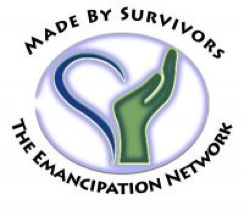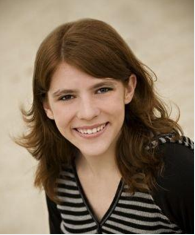Every Woman is a Goddess: Rehabilitating Victims of Human Trafficking
by Megan Cronin
There are an estimated twenty-seven million victims of slavery in the world, fifty percent of whom are females under the age of eighteen.
These women are used for manual labor, or forced into prostitution, often at ages as young as eight.
Some victims are born into brothels; others are sold to slavers by their parents for the meager price of $150. From there, the slavers auction off their virginity, sometimes worth over $1,000, before selling them to a brothel, where many of their lives will end.
Even if some women are lucky enough to get out of the brothel life, they will never be able to return to their native villages due to the stigma that follows being a prostitute.
Sarah Symons wanted to give them new lives.
The Emancipation Network (T.E.N.) was founded by Sarah Symons and John Berger in 2005. Their mission was to rehabilitate the girls who were victimized by life in brothels. Sarah's goal was to help trafficking victims become self-sufficient in a society that was against them.
This idea led to Made By Survivors. Besides taking victims into a shelter and rehabilitating them, Sarah and her team of volunteers teach the women and girls how to make handicrafts. Sarah buys their handicrafts and re-sells them to the public.

To find out more about
The Emancipation Network,
see their products,
and donate to their cause, visit:
http://www.madebysurvivors.com/

http://www.madebysurvivors.com/
I used to be as aware of slavery as my history teacher made me. To me, slavery ended with the Civil War. Even two of my college professors thought the same.
It wasn't until I got involved with T.E.N. that I realized how big the issue really was. I felt compelled to volunteer and raise awareness. As long as there was a girl in need, I would keep fighting to end the trafficking.
It was that drive that led me to organize a fundraiser at my college, the Massachusetts College of Liberal Arts. It took one year to fully complete the process of getting products, filling out paperwork and getting a go-ahead from the school administration.
Spencer Moser, from Student Development, was particularly helpful with getting the paperwork done. When the approval came through, I recruited my friend Jenny Beers to help me with a week-long fundraiser, ending with a presentation that our fellow students could attend.
We sold raffle tickets for a week, encouraging people to donate fifty cents to help end slavery. We also had bracelets from TEN to sell: pink ones that read "I'm Not For Sale!" and black ones that read "Not Buying--End Slavery!"
The sign at the front of our table, exclaiming "Slavery Still Exists," got very different reactions from people. Some looked offended, others confused, others surprised.
A professor approached me and asked where slavery existed. He thought it was only in the Sudan. He was in disbelief when I explained that it is everywhere, even in the United States, where 17,000 people are trafficked as slaves each year.
 |
The night of the presentation arrived. Jenny and I stood at a podium, in Sullivan Lounge, with a Power Point presentation we'd made earlier projected behind us. By 7:30pm a modest crowd of eleven people had arrived. They were eager to learn how to help and horrified that the issue of slavery still affects our world.
Jenny read aloud from a very touching blog that her friend wrote while visiting a shelter in India. She told a story about how the women at the shelter believe every woman is a goddess, and they decided which goddess the visiting women were upon their arrival. It made me think more.
What seems like a small difference to us might be a goddess-worthy act to others. Helping is not as difficult as it may seem.
By the time the fundraiser ended, we had raised $82 for The Emancipation Network. It sounds like a very small number, but according to a pamphlet from TEN, it is enough to feed over 300 children a nutritious dinner at a shelter.
A little help goes a very long way.

Megan Cronin lives in Sandwich. She was published in Inklings from Cape Cod and won three local poetry slams.
She is currently studying Writing at the Massachusetts College of Liberal Arts.
